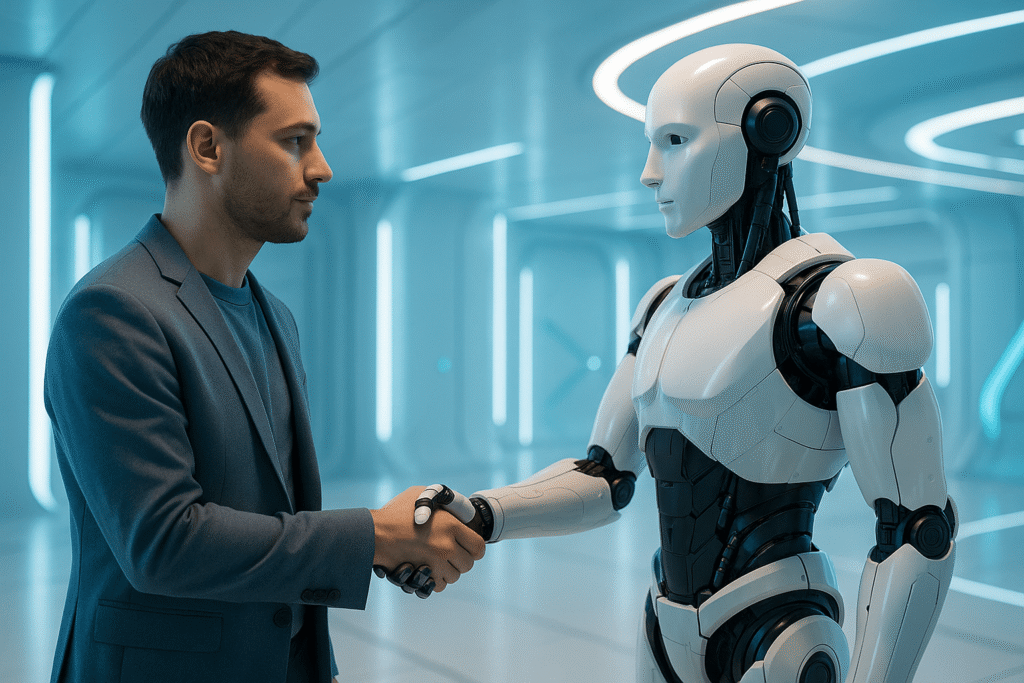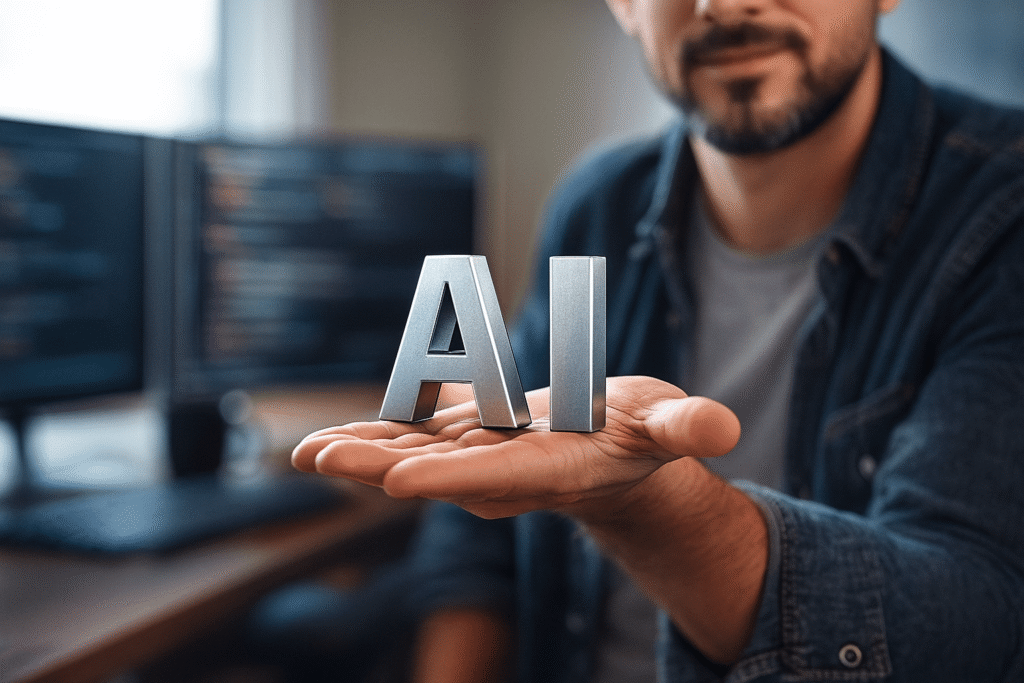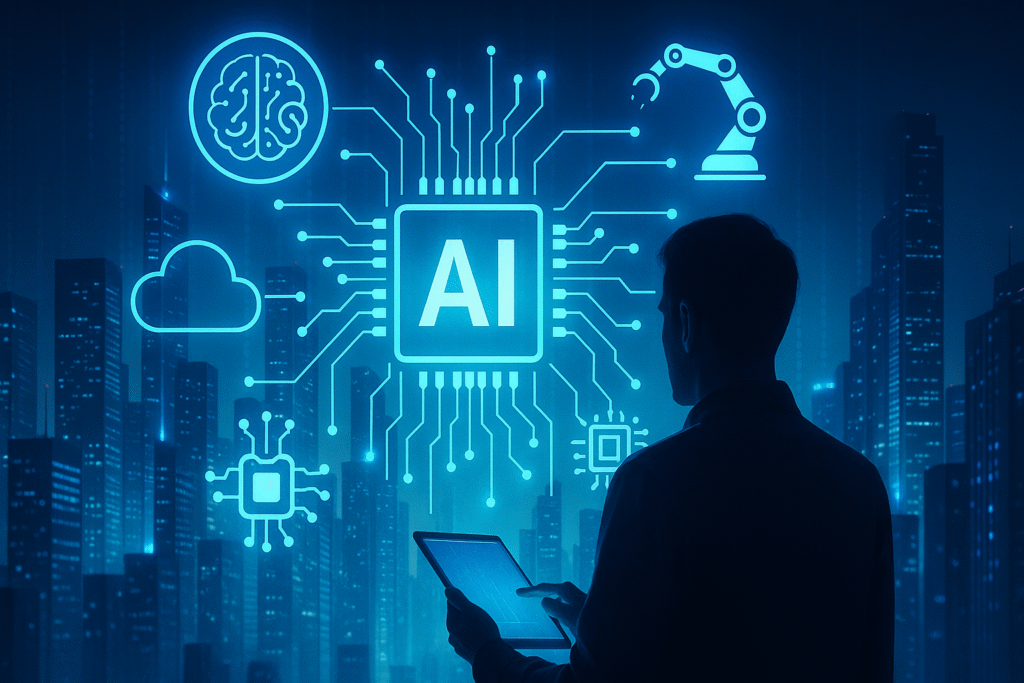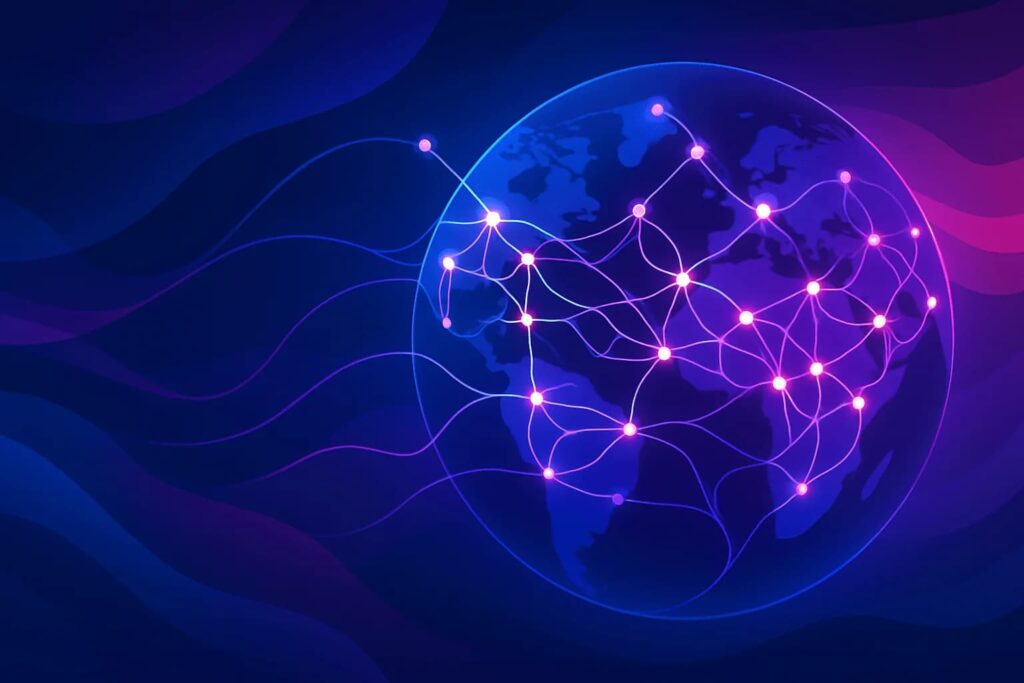What Jobs Will AI Agents Replace?

We’ve all heard the scary story: AI is coming to eliminate a million jobs. From news headlines to late-night conversations, the idea of machines replacing humans has turned into one of the biggest workplace anxieties of our time. And with the rise of AI agents — not just tools, but autonomous systems that can think, plan, and act with minimal human input — the fear feels more real than ever.
But while AI agents will absolutely replace certain types of work, by the next decade, they’ll also transform roles, create entirely new opportunities, and push us to double down on the skills only humans can bring to the table.
This article breaks down which jobs are at risk of being replaced by AI, which will evolve, and how you can prepare for the shift that’s already underway.
Table of Content
What Are AI Agents, and How Do They Work?
AI agents are a step beyond traditional automation. Instead of following rigid, pre-programmed instructions, they’re designed to operate more like autonomous coworkers — able to perceive their environment, make decisions, and act without constant human supervision.
At their core, AI agents combine three main capabilities:
- Understanding: They process input (like a customer’s message, a dataset, or even a live video feed) to interpret what’s happening.
- Reasoning: They evaluate goals and options, choosing the best course of action based on rules, learned patterns, or both.
- Acting: They execute tasks on their own — whether that means drafting an email, approving a transaction, or moving data across systems.
Unlike simple chatbots or automation scripts, AI agents are dynamic: they can learn from feedback, adapt to new situations, and handle multi-step workflows. For example:
- A customer support agent can not only answer a question but also check an order, process a refund, and follow up with a personalized offer.
- A sales agent can analyze leads, draft outreach messages, and adjust strategy based on results.
- A research agent can scan thousands of documents, summarize findings, and recommend next steps.
In short, AI agents work by bridging intelligence and action. They become digital problem-solvers that can actually take work off your plate.
Industries Most Affected by AI Automation
AI agents aren’t spreading evenly across every field — they’re hitting hardest where work is repetitive, digital-first, and data-driven. Let’s look at the sectors already seeing big shifts:
Customer Support
AI-powered chat and voice agents are taking over frontline interactions, resolving basic issues like password resets, order tracking, and billing inquiries. For many companies, this means leaner call centers and faster response times.
Administration & Clerical Work
Tasks like scheduling, document drafting, compliance checks, and data entry are increasingly handled by AI agents. They work around the clock, reduce errors, and free up humans for more strategic responsibilities.
Retail & Sales
From automated checkout systems to AI-driven product recommendations and sales outreach, agents are reshaping how businesses interact with customers — often with higher efficiency and personalization.
Content & Media
Generative AI agents are already creating drafts, transcribing audio, editing videos, and even suggesting creative directions. While not a replacement for original strategy or storytelling, they’re disrupting entry-level media and marketing roles.
Finance & Legal
AI agents can review contracts, flag risks, detect fraud, and manage routine compliance tasks far faster than junior analysts. Financial services firms are using them to monitor transactions in real time, while legal teams leverage them to scan vast libraries of case law.
Healthcare (Early Stages)
While AI algorithms won’t replace doctors, agents are being deployed for medical imaging analysis, patient triage, and monitoring health data, cutting down administrative burdens and improving early detection.
Jobs at Risk of Replacement with Artificial Intelligence
Not every job is equally vulnerable to AI disruption. The roles most at risk share a common thread: they’re repetitive, rules-based, and don’t require deep creativity, empathy, or strategic thinking. These are the tasks AI agents excel at: handling them faster, cheaper, and often with fewer mistakes.
Here are some of the clearest examples of careers AI could replace:
Data Entry Clerks
Feeding information from one system to another is exactly the type of structured work AI does best. Intelligent agents can scan documents, extract data, and update databases with near-perfect accuracy.
Telemarketers
AI-driven voice agents can already make outbound calls, follow scripts, and adjust to responses in real time. Unlike humans, they don’t get tired, frustrated, or distracted, making them a cost-effective replacement for high-volume sales calls.
Customer Service Representatives (Basic Tier)
While complex, emotionally charged issues still need a human touch, a huge portion of customer inquiries — billing questions, order tracking, password resets — can now be fully handled by AI chat or voice agents.
Junior Paralegals & Compliance Reviewers
Scanning mountains of contracts, identifying standard clauses, and flagging risks is time-consuming for humans but a natural fit for AI systems. Legal tech agents are already cutting into entry-level legal and compliance work.
Proofreaders & Translators (Basic Level)
AI-powered grammar checkers and translation tools have reached a level where they can handle routine proofreading and standard translations. While nuance and cultural sensitivity still require humans, the need for basic-level roles is shrinking.
Bookkeepers & Payroll Clerks
Routine financial management tasks — from reconciling transactions to generating payroll — can now be automated by AI-driven accounting platforms, leaving fewer manual jobs in small businesses and large corporations alike.
Occupations AI Will Transform (Not Replace)
AI agents aren’t just about replacement — in many career paths, they’re already becoming force multipliers. Here’s a closer look at how different roles are being reshaped:
Here are some of the clearest examples of careers AI could replace:
Software Engineers
Perhaps no profession illustrates the “transform, not replace” effect better than software engineering.
Tools like GitHub Copilot or AI coding agents can generate boilerplate code, suggest function completions, debug, and even optimize algorithms. They speed up the “grunt work” of coding. But engineers are still needed to design architectures, ensure security, align with business needs, and make judgment calls about trade-offs (performance vs. scalability, compliance vs. speed). AI can suggest a solution, but not necessarily the right solution in context.
Instead of typing every line of code, engineers will spend more time as system designers and reviewers, managing complex integrations and ensuring AI-written code meets high standards. This makes software engineers more like tech architects or problem-solvers than pure coders.
This is something we observe nowadays when hiring offshore developers for our clients. While AI usage becomes a new standard in the software development industry, tech companies still want to see people as part of their team. However, there is a new level of expectation: developers need to understand and leverage AI when it makes sense.
Doctors & Healthcare Professionals
AI can analyze X-rays, MRIs, and patient data with impressive accuracy, sometimes spotting anomalies humans miss. Agents also monitor vitals in real time and handle administrative tasks like charting. Still, patients need empathy, reassurance, and nuanced judgment. AI can flag an abnormal scan, but it cannot comfort a patient through a life-altering diagnosis or choose the most ethical treatment path.
Doctors will rely more on AI for diagnostics and decision support, while focusing their energy on treatment planning, communication, and patient care.
Teachers & Educators
AI tutors can provide personalized exercises, adapt to student learning styles, and give immediate feedback. They can also automate grading and track student progress. However, teaching isn’t just about delivering content — it’s about inspiring, motivating, and mentoring students. AI can’t replace the trust and emotional connection between a student and a teacher.
Teachers will spend less time on repetitive tasks and more time mentoring, coaching, and fostering creativity — shifting from “lecturers” to “learning guides.”
Marketing & Creative Roles
AI agents can analyze campaign data, identify audience trends, generate ad copy variations, and even produce design drafts. Strategy, brand storytelling, cultural awareness, and originality remain deeply human domains. An AI can suggest “what works,” but only humans can decide “what resonates.”
Marketers will increasingly act as strategists and curators, using AI as a creative partner for brainstorming and iteration, while ensuring brand voice and vision remain distinct.
Managers & Business Leaders
AI can generate performance dashboards, highlight bottlenecks, forecast financial trends, and even suggest resource allocations. But true leadership requires vision, trust-building, negotiation, and handling messy human dynamics. AI can provide data, but not rally a team around a mission.
That’s why managers will rely on AI for operational clarity, while spending more time on team culture, leadership, and long-term strategy.
Scientists & Researchers
Agents can read thousands of academic papers in minutes, extract insights, and run simulations of potential hypotheses. They can even generate drafts of research papers. But deciding which questions to ask, designing ethical experiments, and interpreting ambiguous findings still require human intelligence and creativity.
Researchers will act more like directors of discovery, guiding AI systems to handle the heavy lifting of analysis and experimentation, while focusing on breakthrough thinking.
Jobs Least Likely to Be Replaced with AI Agents
While AI automation is advancing rapidly, there are some fields where human skills remain irreplaceable. These jobs rely on empathy, emotional intelligence, physical presence, moral judgment, or complex creativity — areas where machines simply can’t match human nuance.
Therapists & Psychologists
Mental health care depends on empathy, trust, and the ability to read subtle human emotions. While it can provide supportive chatbots, AI doesn’t truly connect with someone on a human level or navigate deeply personal experiences. The therapeutic alliance — the bond between therapist and patient — is something no algorithm can replicate.
Social Workers & Care Providers
Caring for vulnerable populations involves sensitivity, adaptability, and cultural understanding. AI can assist with logistics (case management, scheduling) but not replace human compassion in high-stakes situations.
Senior Executives & Strategic Leaders
Running an organization isn’t just about analyzing data — it’s about vision, negotiation, and uniting people around a mission. AI can advise, but humans must lead and take care of persuasion, ethical decision-making, and creative risk-taking.
Skilled Trades & Craft Professions
Electricians, plumbers, carpenters, chefs, and mechanics work in environments requiring hands-on skill, adaptability, and problem-solving in unpredictable conditions. Robots may assist, but widespread full replacement is decades away.
Creative Arts & Entertainment
While generative AI models like ChatGPT can generate text, images, and even music, true artistry required for creative jobs comes from cultural context, lived experience, and originality. People crave human stories, not just well-formed outputs. Authenticity, emotional depth, and the ability to spark cultural movements are impossible without people’s minds and spirits.
Teachers of Young Children
Early education is as much about social development and emotional guidance as academics. AI isn’t helpful here; children need role models, encouragement, and care that only humans can provide.
The Bigger Picture: AI as a Job Creator
It’s easy to focus on what AI agents might take away from us — the routine jobs, the predictable roles, the tasks that machines can now perform faster and cheaper. But if history has taught us anything, it’s that technology doesn’t just eliminate work; it reshapes it.
Just as the internet created entirely new industries, AI technologies are opening doors to professions we couldn’t have imagined a decade ago: from AI trainers and human–AI interaction designers to ethics experts, oversight managers, and domain specialists who combine industry knowledge with AI fluency.
AI revolution won’t take all the jobs — but it will change all of them. The winners in this shift will be those who stay ahead and learn to adapt, to use AI as a co-pilot, and to invest in the very skills that machines can’t replicate: empathy, judgment, creativity, and leadership.
So instead of asking, “What jobs will AI replace?”, the better question is, “How can we evolve alongside it?” The future of work isn’t man versus machine — it’s man with machine.
FAQ
AI will replace jobs that involve repetitive, rule-based tasks. This includes data entry clerks, telemarketers, junior customer service reps, basic-level translators, and compliance reviewers. These roles rely on structured work that AI can complete faster and more accurately.
Jobs that require empathy, creativity, strategic judgment, or hands-on physical work are least likely to be replaced. Examples include therapists, teachers, executives, skilled trades (like electricians or chefs), and creative artists. AI may support these professions, but it cannot fully replicate human skills.
Yes. AI agents are already creating demand for AI trainers, human–AI interaction designers, ethics and compliance specialists, and industry-specific AI experts. Instead of eliminating all work, AI will transform the job market, shifting people into roles that combine human strengths with machine intelligence.
TurnKey Staffing provides information for general guidance only and does not offer legal, tax, or accounting advice. We encourage you to consult with professional advisors before making any decision or taking any action that may affect your business or legal rights.
Tailor made solutions built around your needs
Get handpicked, hyper talented developers that are always a perfect fit.
Let’s talkPlease rate this article to help our team improve our content.
Here are recent articles about other exciting tech topics!




